Symposium Day a skill builder and confidence booster for grad students
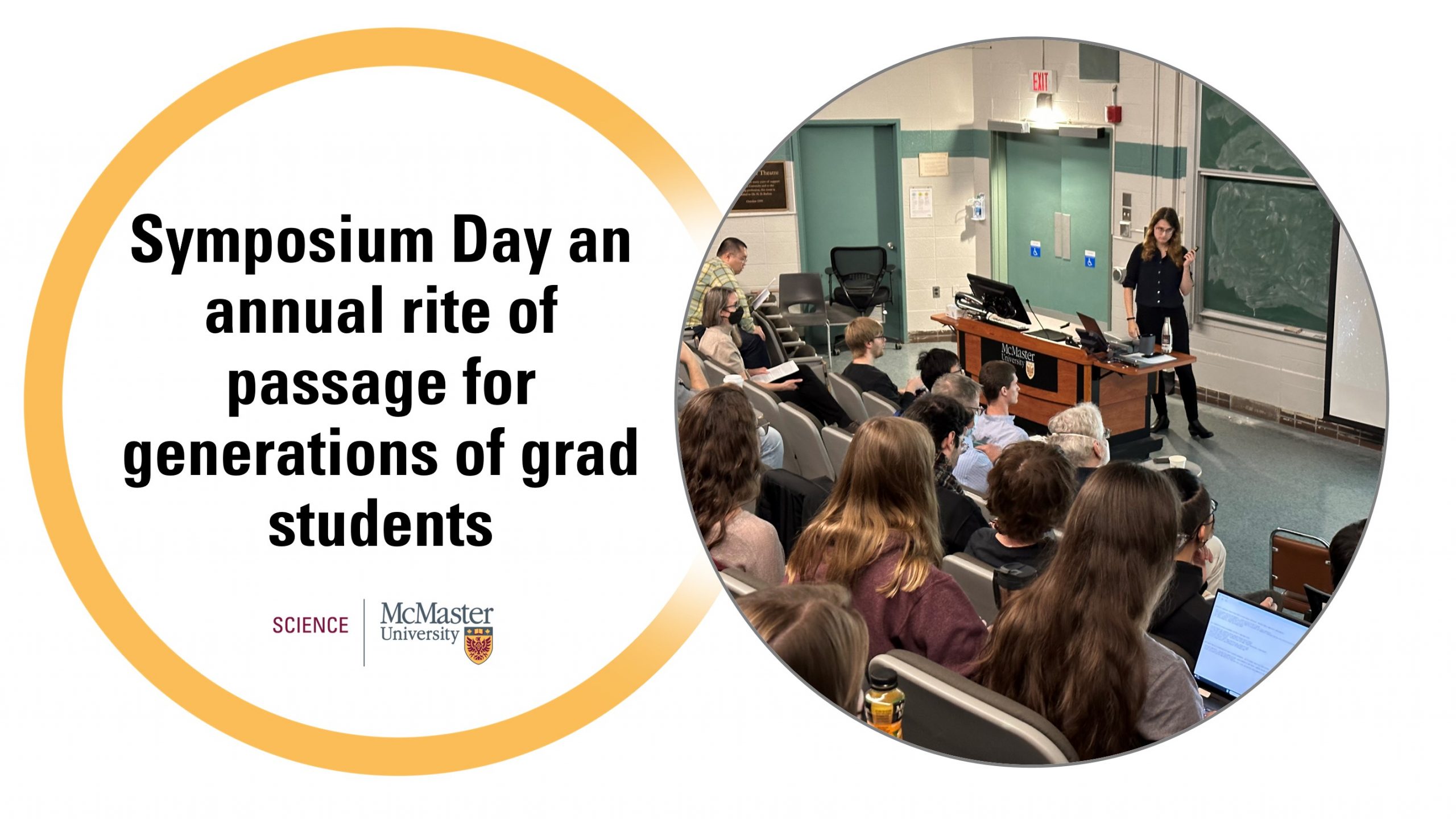
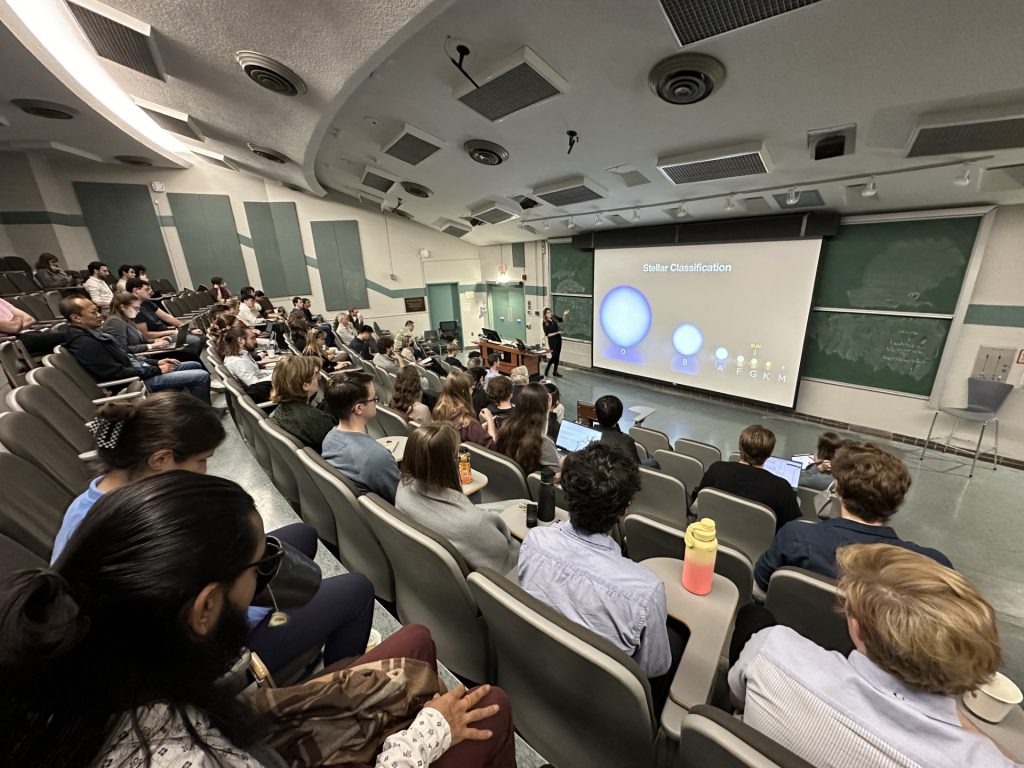 Symposium Day’s a rite of passage for graduate students in the Department of Physics & Astronomy. It’s an annual tradition that goes back decades.
Symposium Day’s a rite of passage for graduate students in the Department of Physics & Astronomy. It’s an annual tradition that goes back decades.
Professor Bruce Gaulin was one of the grad students who presented at the 1982 symposium. It was the first time Bruce delivered a research talk outside the classroom. And it’s where he first met his future spouse Karen Hughes.
Bruce had joined McMaster a year earlier, working under the supervision of Malcolm Collins. Bruce presented research on the magnetic crystal he’d synthesized in Malcolm’s lab and then performed neutron measurements on at Chalk River Laboratories.
Bruce, who’s the Brockhouse Chair in the Physics of Materials at McMaster, has gone on to deliver more than 300 research talks at conferences, universities and labs across the country and around the world.
Karen was an incoming graduate student who sat in on the Symposium Day talks and joined the party that capped off the day. Karen and Bruce became good friends. In his 1986 graduate thesis, Bruce wrote “I am especially indebted to Karen Hughes for her friendship and many helpful discussions over the course of this work.”
Bruce and Karen married in 1987 and worked together in the Department of Physics & Astronomy for 20 years. Karen is now retired and giving back through volunteer work.
Eighteen students presented at this year’s symposium during Fall Reading Week. It’s a command performance for second-year graduate students and the day’s run like an academic conference, says Professor and Graduate Studies Chair Laura Parker.
Laura and staff member Rosemary McNeice review the abstracts submitted by grad students and organize sessions around different research areas. Three senior PhD students chair the sessions and score the presentations. Grad students have 12 minutes to present their research and three minutes to answer questions from faculty, postdoctoral fellows and fellow graduate students in the audience.
“I’m happy that scoring is in the capable hands of PhD students,” says Laura. “Choosing the best talks is the hardest task of the day given the extremely high calibre of all the graduate students’ presentations.”
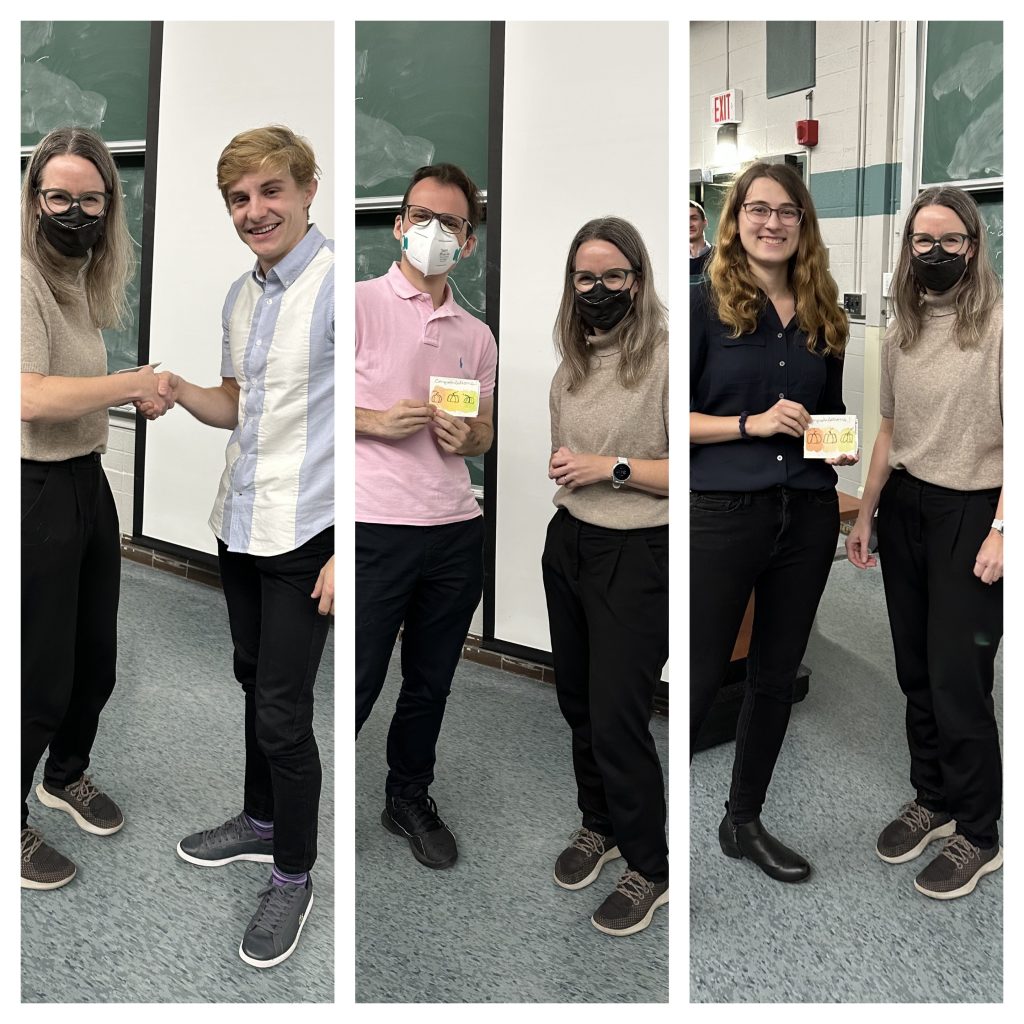 This year’s symposium was no exception, with Cameron Burns, Daniel Dobrowolski and Nicole Gromek (left to right) earning top marks. The trio said the experience was well worth the hours spent planning and rehearsing their presentations.
This year’s symposium was no exception, with Cameron Burns, Daniel Dobrowolski and Nicole Gromek (left to right) earning top marks. The trio said the experience was well worth the hours spent planning and rehearsing their presentations.
“It was definitely stressful to be presenting to the entire department,” says Nicole. “But ultimately, it’s a supportive environment and having so many friendly faces in the audience really helps settle a few of the butterflies in your stomach. Symposium Day is a tradition in our department and I was proud to be a part of that legacy. My supervisor Dr. Ryan Cloutier had a lot of great advice when I was still developing my talk. His presentations are always dynamic and fun to listen to, so you could say I’m learning from the best.”
Feedback from supervisors also proved invaluable for Cameron and Daniel.
“My supervisor Dr. Kari Dalnoki-Veress and the rest of his research group helped me put together a good story and trim the fat off my presentation,” says Cameron who estimates he spent 30 hours prepping for his 12-minute talk. “I also gave the presentation to my family while they were visiting. I spent 40 minutes answering their questions which was very useful practice.”
Daniel began thinking of his presentation the moment he learned about Symposium Day. “My supervisor Dr. Pat Clancy has made my first year of research amazing from the experiences we get to the feedback he gives. He’s truly helped me learn a lot and build my confidence in my research. My group members Zi and Monika, who helped both with the research project that I presented,gave great feedback on the presentation. It was really cool seeing all the research the graduate students are doing and it was awesome getting to know more about them through their research and presentations.”
Bruce says Symposium Day helps researchers develop a key skill, one he’s used throughout his own career. “Knowing how to give a cogent presentation on why your research is interesting and important is essential. People form an impression of you, favourably or not, based on your presentations. Once that impression’s formed, it’s hard to change.”
Students in Bruce’s graduate courses deliver short presentations before their Symposium Day talks. “I tee up the presentations by telling students that, based on my experience, speaking and presentation skills will have a disproportionate influence on their careers so it’s in their best interests to hone this skill set while they’re at McMaster.”
It’s an experience that first year grad students in Physics & Astronomy can look forward to next fall.
Tips for delivering a successful presentation
Bruce Gaulin: “Good speakers probably get more credit than their research merits, and poor speakers definitely get less. The good news is that, with thought and effort, anyone can become a better speaker, and practice helps a lot. So, there is no time like the present to get started. Also, watch other speakers at Symposium Days, colloquia, seminars, talks and conferences. Think critically about what you liked and didn’t like about their presentations. Adopt the aspects that you liked – imitation is the sincerest form of flattery.”
Nicole Gromek: “Try to keep the audience engaged, either through animations, small jokes, or any method that works best for you. As well, people will mentally drift off at some point or the concepts won’t be clear to them yet, so it really pays off to reiterate the central points you want to convey all throughout your talk. Doing a presentation helps you review what you’ve been doing and why you’ve been doing it. Both are crucial to remember when you’re motivating yourself or talking to someone for the first time about your research.”
Cameron Burns: “Know your audience. For symposium day, you’re presenting to a room of physicists of very different fields of knowledge, so you will need to dedicate a healthy section of your talk to discussing necessary scientific background. With that, try to build an engaging, compelling story and then rehearse, rehearse, rehearse to dial in the transitions and build your confidence.”
Daniel Dobrowolski: “Most people don’t know the specifics of your research, so even if you make a mistake most people won’t notice. And no one is expecting perfection, we’re all students looking to learn and presenting is one of the things we learn by doing. Like what you’re presenting, practice (a lot), get good feedback from peers and supervisors about the content but also get plenty of feedback about the look of the presentation. I don’t like sticking to a rigid script, because if one thing throws you off the script it could derail everything else. Instead, I like knowing the general points and hitting them, giving myself plenty of wiggle room.”
Photos by Professor Kari Dalnoki-Veress
Research excellence
Related News
News Listing
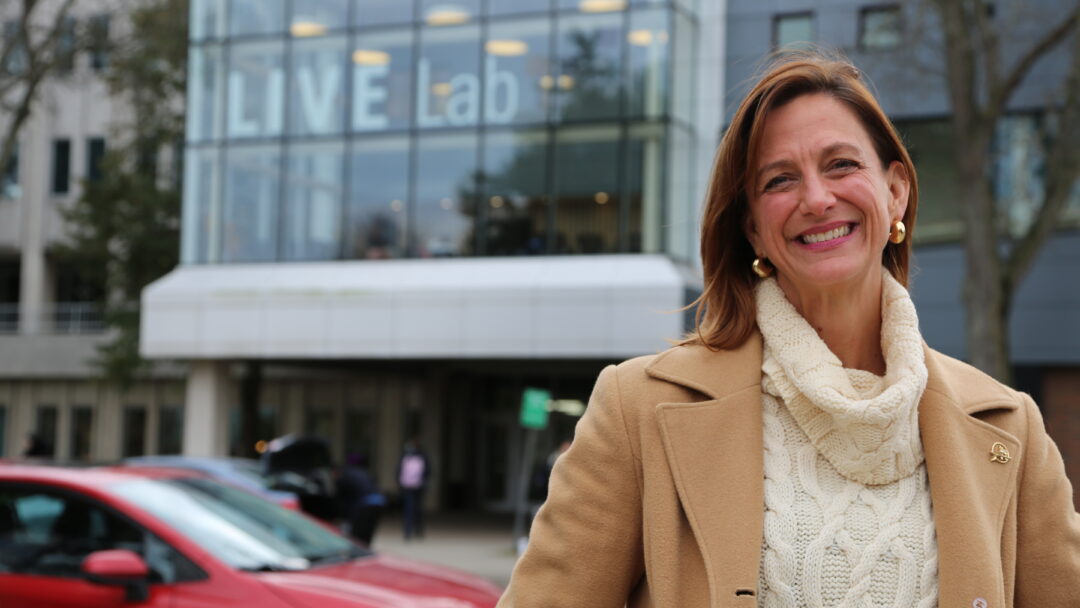
Community News ➚
PhD graduate makes the case for offering music therapy to stressed students- “put the broccoli in the brownie”
Research excellence
12 hours ago
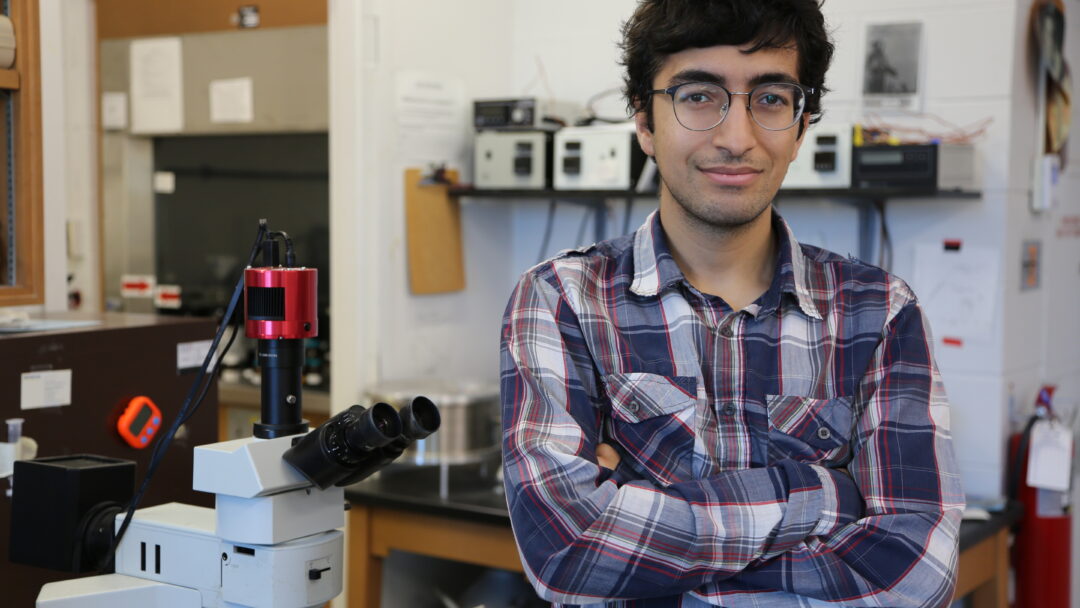
Community News ➚
Grad to Watch: Research, academic and outreach all-star Hamza Khattak
Research excellence
3 days ago
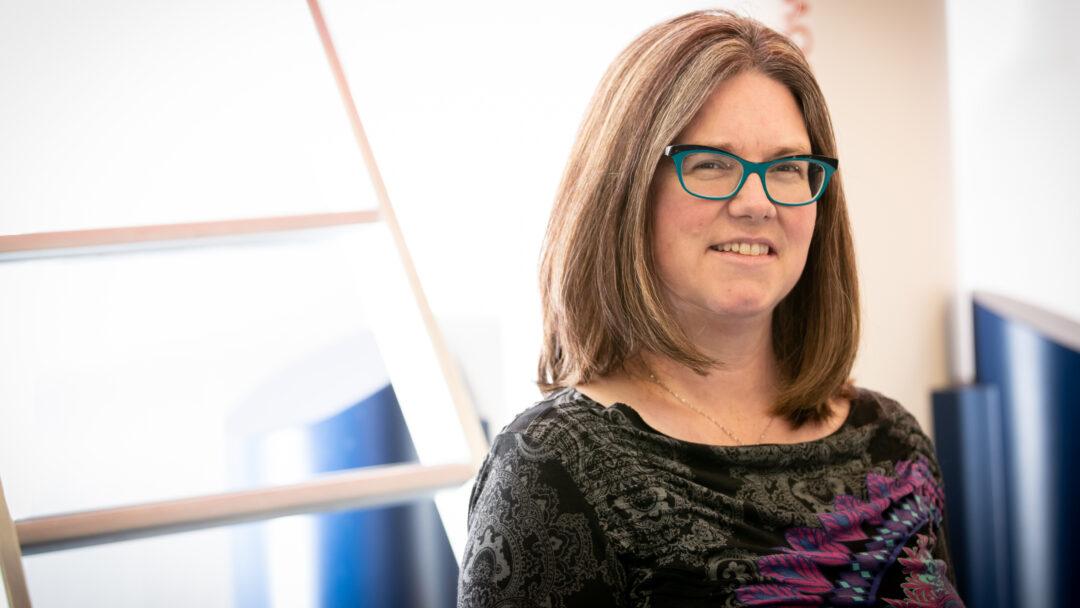
November 5, 2024
